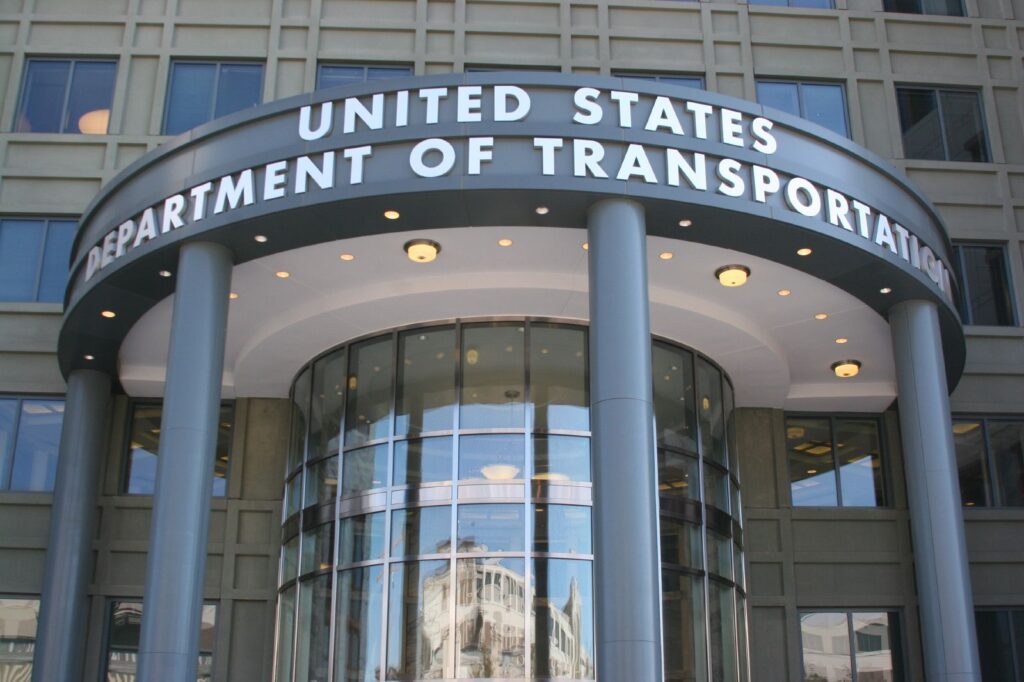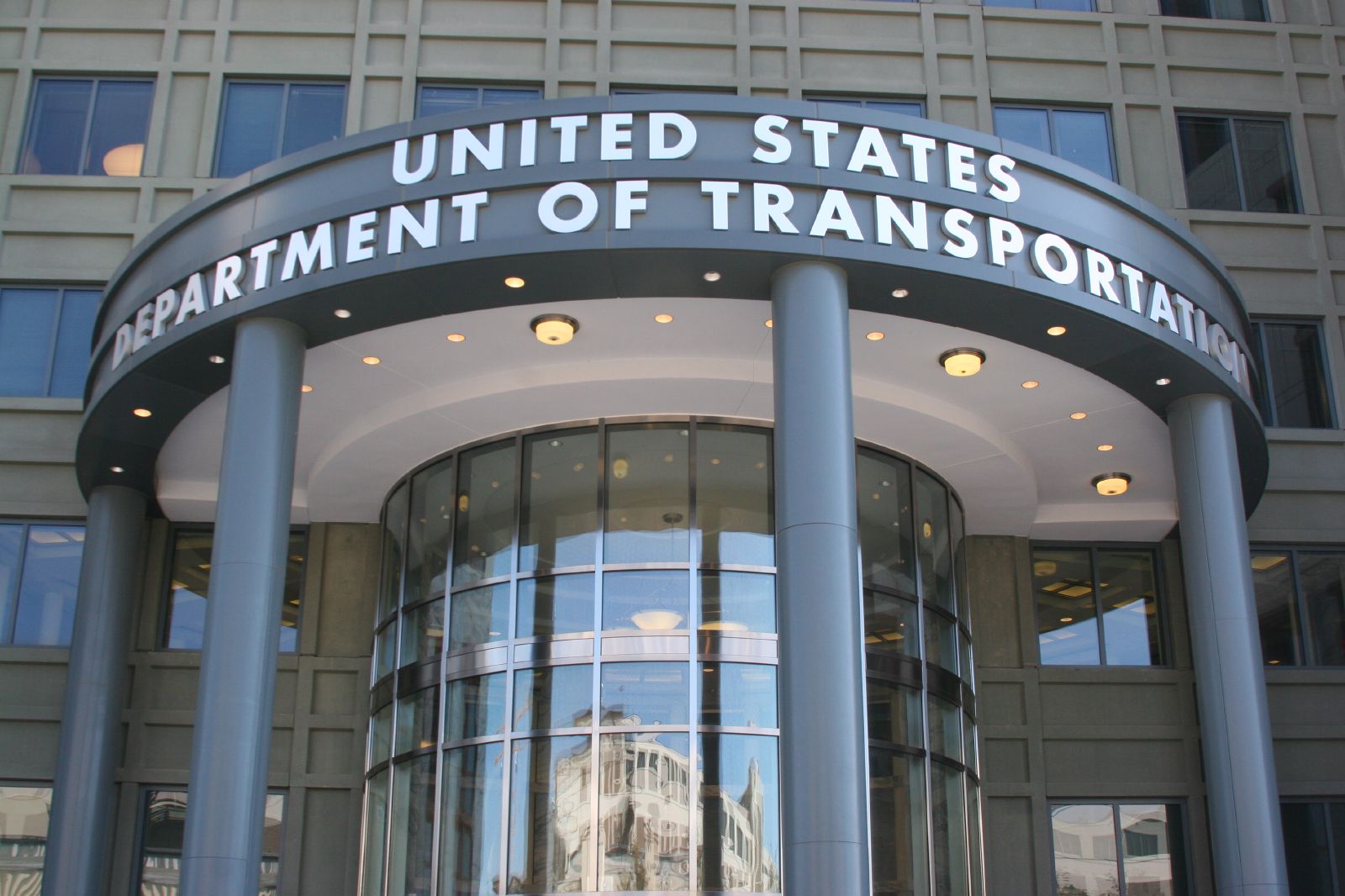Senators Want More Airline Accountability from DOT

U.S. Department of Transportation Building
In a letter sent to Transportation Secretary Pete Buttigieg and DOT general counsel John Putnam. Senators Elizabeth Warren of Massachusetts and Alex Padilla of California want answers on how the agency plan on ensuring consumer protections in the space.
Citing Higher Cancellations, Lawmakers Want More Support
In their letter, the two legislators cite both increasing airfares and the increased number of cancellations for their alert to the Transportation Department. According to the latest data released by the DOT, airlines have cancelled over 122,000 flights this year, which the senators note is more than all of 2021. Moreover, flyer frustrations have boiled over, filing even more complaints than ever.
“Even after receiving $50 billion in government assistance, airlines have failed to issue at least $10 billion in refunds for flight cancellations throughout the coronavirus disease 2019 (COVID-19) pandemic, despite being required to do so by federal law,” the letter reads. “Put another way, Americans are spending far more money for a substandard travel experience—and sometimes to not fly at all.”
The pair note the Transportation Department has authority over “unfair practices” in three different areas: Flight delays, Flight cancellations and involuntary rebookings. In regards to delays, Senators Warren and Padilla suggest the DOT issues a new rule “that imposes fines on airlines on the delays they cause.”
The two also want the agency to create and enforce penalties on cancellations and re-bookings as well. The letter calls for air carriers to be held accountable for cancelling flights “whether due to their own poor operations and staffing practices through intentional schemes to offer flights they know they can’t staff in order to later cancel the least-profitable flights.” They argue that adding penalties for cancellations could “change airlines’ calculus about harming consumers to protect their own profits.” On involuntary re-bookings, the two suggest adding rules which “compensate passengers enough to encourage voluntary re-bookings or else pay a hefty fine (in addition to compensating the passenger).”
Their letter closes with ten questions they want the Transportation Department to answer by August 9, 2022. Their questions include:
- During the Biden Administration, how many hearings has the Department held to assess whether an air carrier is engaged in an unfair or deceptive practice or unfair method of competition?
- Please describe the status of all rulemakings pertaining to airline consumer protections currently under way and any proposed rulemakings the Department is currently considering.
- Since 2000, how many times has the Department referred a merger or airline practice to the Department of Justice or another competition or consumer protection enforcement agency?
Officials from the DOT have not publicly responded to the letter.
Inquiry Comes as Airline Industry Poises for Changes
The senators’ letter come as the airline industry is in chaos from public travel demand and changes which could change the competition. In addition to at least two flyers claiming airlines stuck them with big bills, Spirit Airlines is caught in the middle of a bidding war between JetBlue and Frontier Airlines.
Feature image courtesy: kmf164/flickr/CC BY-SA 2.0























It always amazes me that these government no-nothings, do-nothings want more accountability. Let's start with them and then we can go to the airlines.
Maybe it's about time the US passes legislation similar to the EU, as well. I recognize that some of the current issues are beyond the airlines' control (weather, airports, ATC), but they need to be held accountable for problems of their own doing -- and poor management, meaning poor planning, is of their own doing.
Very true. I have watched the industry for decades from before deregulation to the present and it is making me support some form of re-regulation.
The industry had its chance and blew it, acting like kids let loose in a candy store with over expansion of route networks and aircraft fleets (often bought on credit). This overextension along with cutthroat competition soon resulted in financial woes that led to bankruptcies and eventual consolidation with other carriers. New carries entered the market only to fail or be absorbed by others.
Some of course cite that fares were higher back then, and yes that was true for the economy of the day, but all fares were standardised through the industry and based on distance flown instead of market popularity, the latter which highly discriminates against those living in small to mid sized communities (for example to fly form Portland to Chicago is more expensive than from Seattle which s a bigger market city whereas in the regulated days the fare was exactly the same from/to both). Also fares only changed once or twice a year as the government mandated, not every five or ten minutes. There was also a variety of different discount fares available that no longer exist which made it easier for more people to travel by air. Finally there were few if any restrictions and none of the excess fees/penalties we have today. [cont...]
[ctd. from previous]
During that era one could walk up to a ticket desk at the airport and purchase a ticket to fly the same day for the same price as reserving a week or more in advance. Meal service was covered (and was more than a bag of salty pretzels), luggage was covered in the price of a ticket (unless there were excessive amounts of pieces or it was oversize/overweight), and one could change itinerary with no extra charge or even cancel a trip and get a full refund. Routes were also more "linear" and may have included a stop or two on the way, bit no change of plane as well as not having to travel through some out of the way hub (or even backwards) as today
Before 1979 there were ten "majors" and a about a dozen "regionals" (not to be confused with air commuter services) in the country. Today we only have three of the original majors remaining: American, Delta, and United (Southwest grew out of a Texas Intrastate carrier) severely limiting choices. One regional (Alaska) as well as another intrastate carrier (Hawai'ian) also went "national".
Deregulation was supposed to foster "healthy" competition but in the end, the it was more destructive and predatory leaving us with fewer options, a few of which I wouldn't fly on even if they charged only 50$ to fly coast to coast round trip.
Old boomer reimaging the past through rose colored glasses, adjusting for inflation, tickets weren't just "a little more expensive" but way more expensive to the tune of 3-5x as much as they are today. If you want a little more comfort you can always fly business class today would still be cheaper then an economy ticket from 40 years ago and you can still get your included meal with cutlery, skip the counter, get to the lounge and so on. Just many people don't want this service.
[ctd. from previous]
During that era one could walk up to a ticket desk at the airport and purchase a ticket to fly the same day for the same price as reserving a week or more in advance. Meal service was covered (and was more than a bag of salty pretzels), luggage was covered in the price of a ticket (unless there were excessive amounts of pieces or it was oversize/overweight), and one could change itinerary with no extra charge or even cancel a trip and get a full refund. Routes were also more "linear" and may have included a stop or two on the way, bit no change of plane as well as not having to travel through some out of the way hub (or even backwards) as today
Before 1979 there were ten "majors" and a about a dozen "regionals" (not to be confused with air commuter services) in the country. Today we only have three of the original majors remaining: American, Delta, and United (Southwest grew out of a Texas Intrastate carrier) severely limiting choices. One regional (Alaska) as well as another intrastate carrier (Hawai'ian) also went "national".
Deregulation was supposed to foster "healthy" competition but in the end, the it was more destructive and predatory leaving us with fewer options, a few of which I wouldn't fly on even if they charged only 50$ to fly coast to coast round trip.
No Democrat has proposed that.
Any punishment to the airlines will be collected and redistributed to parties other than the ones injured by the companies.
They don't care about consumers, they just hate business.
If airlines are not refunding as per the law, then maybe the law should be enforced? Creating new laws that will also not be enforced will help no one.
Democrats want to grandstand and fine the evil capitalist companies, but they certainly have no intention of directing those funds back to the injured bougoisie consumer.